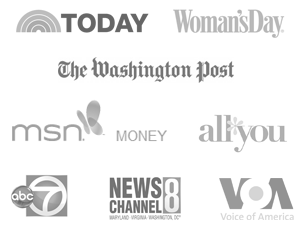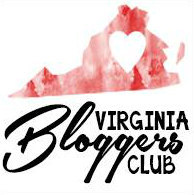Share the post "American Heart Association EmPOWERED To Serve Summit"
In a heartbeat, your life can change. But how often do you really think about your heartbeat, and the impact that heart health has within our community?
Heart health matters
My grandmother had a debilitating stroke when she was in her 70s. She lost function of the right side of her body and it took a long time to regain use of it. She had to relearn to write and adjust to feeding herself with her left hand. She needed more care and dealt with painful effects from the stroke for the remaining 15 years of her life.
Nine and a half years ago my uncle died unexpectedly. He was bicycling with a friend on a back road, experienced a heart attack, and even with help from his medically-trained friend, his life was cut short at 55.
Heart disease and stroke are two of the most prominent and deadly health issues facing Americans today. If you’re like me, this has directly impacted you or someone in your family, office, neighborhood, or circle of friends.
The American Heart Association EmPOWERED To Serve
The American Heart Association wants to educate and empower Americans regarding heart issues, as well as provide support to those suffering. This non-profit wants to identify ways to reduce the risk of heart disease and stroke, and raise awareness of warning signs. In order to fulfill their mission in communities that are most at-risk, the AHA has ignited a new movement called EmPOWERED To Serve.
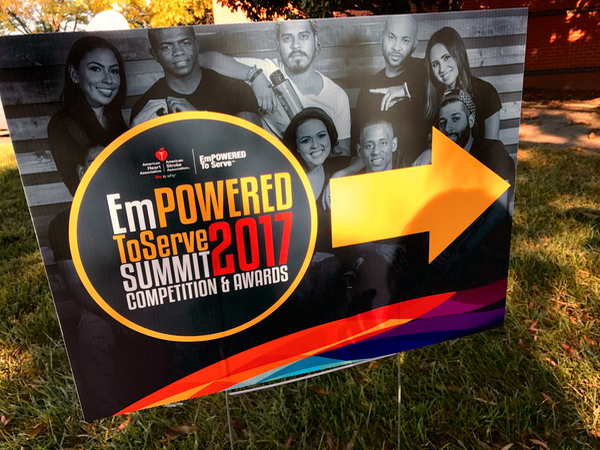
The American Heart Association, through its EmPOWERED To Serve movement, is on a mission to improve health within multicultural communities.
I had the chance to attend the American Heart Association/Mid-Atlantic Affiliate’s EmPOWERED To Serve Summit, October 17 – 18, at Gallaudet University in Washington, DC. During the summit, the American Heart Association and its alliances came together to discuss and collaborate toward creating a “Culture of Health” in diverse and under-resourced communities. To create true, transformative change, they want to “emPOWER” partners and alliances to collaborate and create tailored solutions for local communities.
One simple question they asked was:
What would happen if business owners and non-profits united to improve health-related concerns in under-served communities?
If businesses could creatively solve issues linked to health factors such as economic stability, education, societal influences, neighborhoods, and healthcare, they could transform wellness in that community.
To facilitate this collaboration, they hosted the EmPOWERED To Serve Urban Business Storytelling Competition. Out of 128 submissions last August, ten finalists were selected to present their urban business solution and address barriers to sustainable healthy living.
I had the opportunity to hear all ten of these innovators share their business solutions on the last day of the summit, during the afternoon exhibitor portion and the evening stage presentation before a judging panel. The common thread among all these innovators: they all shared a passion for improving lives in their community. I was impressed by their business models, smart use of technology, grand goals, and fulfilled achievements.
Here’s an overview of all ten EmPOWERED To Serve Urban Business Storytelling 2017 finalists whom I met:
1st Place Winner ($30,000 prize)
Gospel Run — Gospel Run, based in Chicago, IL, is a public health organization created to inspire health, transformation, and expanded possibilities in individuals, families, and communities. Uniting fellowship, fitness, and fun, their 5K walk has inspired thousands to sign up, train, and create a more healthy lifestyle.
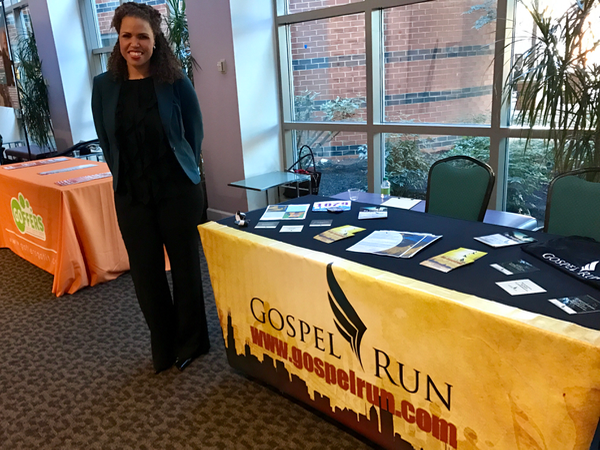
2nd Place Winner ($20,000 prize)
MEANS Database — MEANS (Matching Excess And Need for Stability) is an online database designed to help local food shelves communicate with each other and significantly reduce waste from over-sized donations.
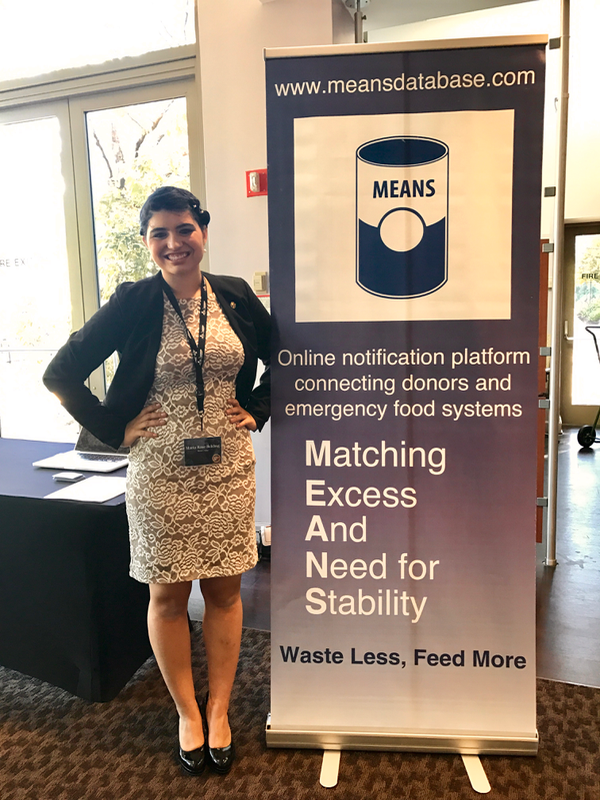
3rd Place Winner ($10,000 prize)
Goffers Got It — GOFFERS is a community based company that allows you to outsource everyday small jobs and tasks to other safe individuals in your neighborhood.
Remaining finalists from the top 10:
Ambience Data — Ambience Data has created products to monitor outdoor air pollution, providing the most accurate, detailed, up-to-date and local air quality data to people, communities, and organizations.
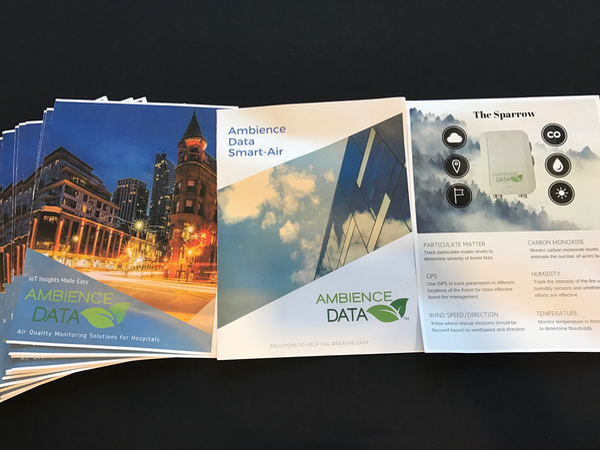
Caravan — Caravan provides round trip shuttles for employers, workforce development nonprofits, and workforce development graduates to reduce absenteeism and increase retention. This company’s goal is to unleash urban potential by providing Detroiters 1M rides to work.
Eat Away Hunger — Based out of Washington, DC, The Eat Away Hunger backpack food program provides nonperishable healthy food to children in need to take home when school meal programs are unavailable. This non-profit mainly runs during the Winter and Spring breaks and three-day weekends.
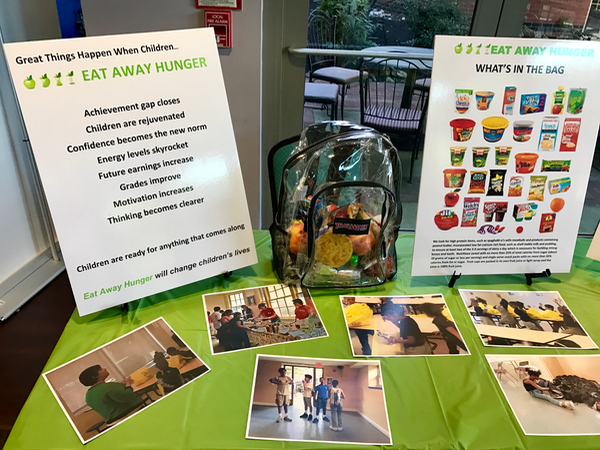
Kheprew Institute — Based in Indianapolis, IN, the Kheprw Institute is a community organization offering “We Run This” program which helps neighbors bring fresh, affordable food to the community while strengthening relationships and supporting urban farmers.
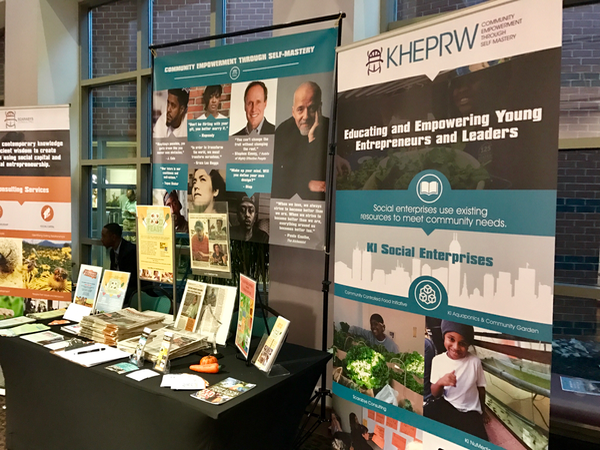
SWIS (See What I See) — SWIS is a product allowing seniors to live life without limitations. Wearing special SWIS glasses allows you to share your view or experience with a sick or shut-in person.
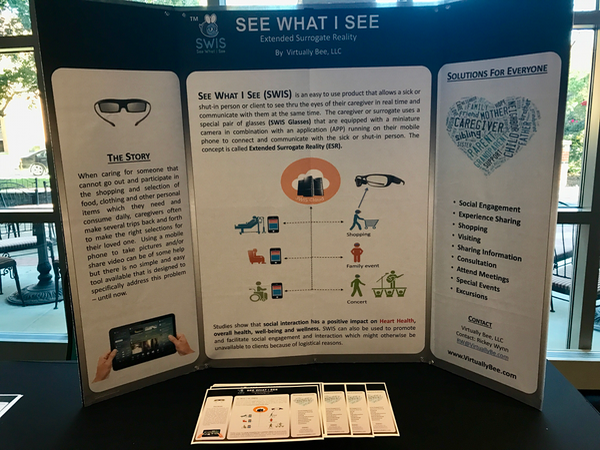
Tricycle Urban Agriculture — Tricycle is an innovative approach to learning the business and practice of Urban Agriculture. Tricycle Urban Agriculture is based out of Richmond, VA and wants to show that growing food is an incredibly powerful way to impact the overall health of our community.
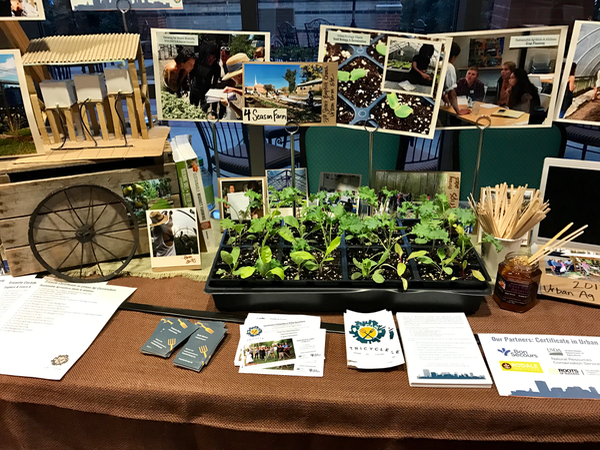
Unite US — Unite US is a veteran-owned technology company that builds coordinated care networks of health and human service providers, supporting individuals by integrating all social determinants of health.
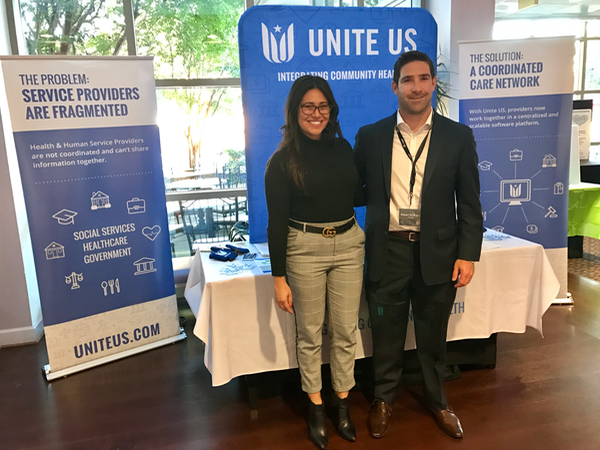
Each of these businesses are making huge strides to address the social determinants of health in the quest to decrease instances of cardiovascular disease and stroke in multicultural communities.
The American Heart Association is cultivating action in our local communities. Thanks to the EmPOWERED To Serve movement, innovators, scientists, medical professionals, non-profits, leaders, and citizens can join together to make a difference.
In case you’re not familiar with the heart risks among different cultural backgrounds, please look at these startling statistics:
- Nearly half of all non-Hispanic black adults have some form of cardiovascular disease, 47.7% of women and 46% of men.
- Hispanics (and African-Americans) with high blood pressure are less likely than Caucasians to get their condition under control, according to January 2017 research published in the Association’s Circulation: Cardiovascular Quality and Outcomes journal.
- 23% (1 in 4) Hispanics have high blood pressure.
- 23.5% (1 in 4) whites have high blood pressure.
- 33% (1 in 3) blacks have high blood pressure.
- 19.5% (1 in 5) Asians have high blood pressure.
- 26.4%(1 in 4) American Indians or Alaska Natives have high blood pressure
- 36.4% percent (1 in 3) Native Hawaiians or other Pacific Islanders have high blood pressure.
- Nearly 29% of Hispanic men (age 20+) deal with high blood pressure.
- About 31% of Hispanic women (age 20+) deal with high blood pressure.
Join the movement by becoming an EmPOWERED To Serve ambassador! It’s a simple way you can raise awareness of heart disease and stroke in your community. Let’s empower and encourage transformative change to foster a healthier city and nation.
Be sure to connect with EmPOWERED To Serve by visiting EmPOWEREDtoServe.com and connecting with them on Facebook and Twitter.
Disclosure: This post is a sponsored post in partnership with the American Heart Association and I have been compensated for my participation. All opinions stated here are my own. To read my formal disclosure policy, please click here.
 Welcome!
Welcome!